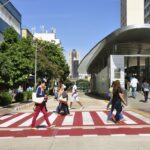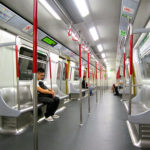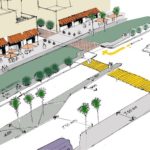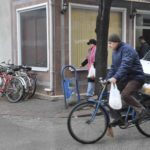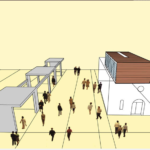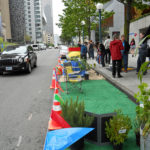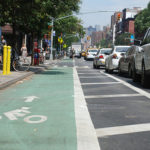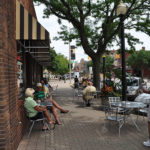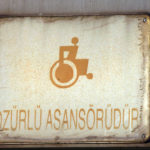Posts tagged with 'Livable Streets'
Urban development in many cities around the world prioritizes making space for cars over pedestrians, cyclists or public transportation. In Brazil, this design led to an average of more than 30,000 annual road crash fatalities nationwide by the turn of the century, ...

A place without people does not a city make. If you’ve ever been to San Francisco, you know that the urbanscape is brimming with tourists, joggers, cyclists, the jet-set and sweater-wearing locals alike. Peppering the roadways are an impressive ...

Katlin Jackson and Julia Levitt are co-authors of this post. There is a lot of talk throughout the United States about transit-oriented development (TOD). The term describes the planning of private development around station areas for new transit system investments, ...

The Center for Sustainable Transport in Mexico (CTS-México) is nominated as a finalist for an online competition, “Sustainable Urban Housing: Collaborating for Liveable and Inclusive Cities,” hosted by Ashoka Changemakers and funded by The Rockefeller Foundation. Other partners include the U.S. Department ...

Originally posted on EMBARQ.org: A new online competition, Active Cities, Healthy Cities, was launched today to raise awareness of cities in Latin America and the Caribbean dedicated to sustainable transport, the environment, and creating a healthy lifestyle for their citizens. ...

Originally posted on EMBARQ.org. EMBARQ Turkey, in collaboration with city officials and local planners, is working to facilitate the construction of pilot cycling corridors in three Turkish cities: Eskişehir, an urban area of about half a million people and two ...

This case study is a continuation of our “Cities in Flux” post about Latino New Urbanism, a way of understanding community, public spaces and neighborhoods by acknowledging the preferences and culture of Latino immigrants. They are places that are layered ...

About half of the world now lives in cities, and this figure is expected to grow to 70 percent by 2050, with most urban growth projected to occur in developing countries. As people move to cities at this unprecedented pace ...

This post is part of a series analyzing the solutions highlighted in the report and toolkit, “Megacities on the Move.” The report, written by Forum for the Future in partnership with FIA Foundation, Vodafone, and EMBARQ, offers six sustainable mobility ...

On November 22 and November 23, 2010, The New York Times gave biking in New York City significant coverage in print. The paper wrote about the city’s plans for a cross-borough bike share system. And then a day later how ...

The concept of the “Do-It-Yourself” (D.I.Y.) city is far more complex than stereotypes of young people pasting posters to walls or hastily drawing bike markers on streets. Take, for example, our post on Latino New Urbanism about how immigrants are shaping ...

U.S. Secretary of Transportation, Ray LaHood recently announced the Walk Friendly Communities (WFC) program, an initiative that “will recognize communities that are working to improve a wide range of conditions related to walking, including safety, mobility, access and comfort.” The initiative ...

A new study conducted by the Turkish government reveals that handicapped citizens face serious and consistent discrimination and barriers to mobility, access to public space and services, including public transit. Turkish daily newspaper Hurriyet reported on the results last week. ...

October is International Walk to School Month, a worldwide effort to promote physical activity and pedestrian safety. And today is 2010 Walk to School Day in the United States, where more than 3,000 schools have already registered their event, ranging from “walking ...

We all know that crosswalks facilitate the safe movement of pedestrians across streets. We should heed them, walk within them and avoid jaywalking. A number of designers are rethinking the traditional concept of the crosswalk in favor of designs that ...










